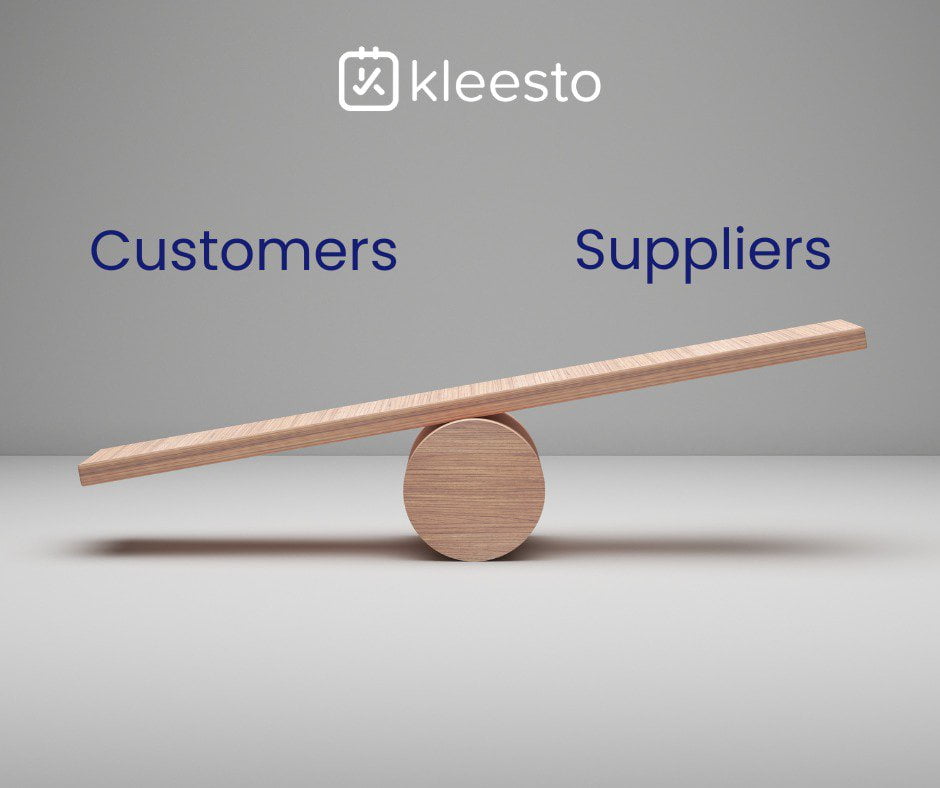Success in the yachting industry hinges on balancing customer and supplier relations. It's all about keeping customers and suppliers happy. This industry stands for the best in luxury and service. People who own yachts or rent them expect the best. They want their time at sea to be perfect.
Next, suppliers are just as important. They ensure the yachts are in top shape and have the best things on board. They offer everything from food to fixing broken things and aim to please their customers. Good communication and quick problem-solving are key. They also need to know the yachting world.
Lastly, yacht brokers and managers are the go-betweens. They make sure everything runs smoothly for both sides, they handle lots of details, work out deals, and listen to what clients want. Building strong bonds with customers and suppliers helps the industry. This way, everyone keeps having great times out on the water.

Understanding the Importance of Customer Relations
The impact of positive customer relations on yacht business growth and reputation
Happy customers are key to a yacht business doing well. When yacht companies make their customers feel valued, they keep coming back. These customers also tell others about the great service they received. This leads to more people wanting to come aboard.
Also, when customers are happy, they often write good reviews. This can bring in more customers and make people trust the company. However, unhappy customers can be a problem. They might post bad reviews online. This can hurt the company's good name and stop it from growing.
So, yacht businesses need to make sure their customers are happy. This helps keep a strong group of customers. Plus, it's good for the business to grow and have a good image.
Best Practices for Building Strong Customer Relations
Tips for effective communication with customers, like active listening and timely responses
Talking to customers the right way is very important for any business. First, you need to listen well. This means paying full attention to what the customer says. Don't interrupt them. When you listen this way, the customer knows you care about their thoughts.
Next, it's important to answer fast. Customers like it when you get back to them quickly. This shows you want to make sure they're happy. It also makes them trust your brand more.
Lastly, be clear when you talk or write to them. Use simple words they can understand. Stay away from hard words that might confuse them. If you do all this, you will talk to your customers better. And that will make your relationship with them stronger.

Maintaining Healthy Supplier Relationships
The role of suppliers in the yacht industry and the impact of their services on business operations
Suppliers are really important in the yachting world. They provide all the things yachts need to work well. This includes materials to build and fix yachts and also special gear and parts. They make sure yacht companies can do their job well.
Also, suppliers help yacht companies be successful. They do this by offering good prices and ensuring things are delivered on time. They also make sure their customers are happy. When yacht companies and suppliers work well together, the yacht companies do better in the market.
So, we see that suppliers are very important for yacht companies. They help them perform well and make money. Without the suppliers, yacht companies wouldn't be able to offer such good experiences on the water.
Balancing Customer and Supplier Relations
Discuss the challenges of balancing the needs and expectations of both customers and suppliers.
It's not easy to keep both customers and suppliers happy. Customers want great products and services that fit just what they need. They look for custom-made options, quick delivery, and good prices. Suppliers, though, have their own needs. They want to make enough money, work efficiently, and keep their own customers happy.
To make things work, both sides need to talk and understand each other well. Suppliers should get what the customers are asking for. But customers should also see what suppliers can and cannot do. Everyone needs to give a little to get what they want.
So, keeping this balance is a job that never ends. People must always be checking and making small changes. When customers and suppliers both get what they need, it helps everyone. The business grows, and the relationships get stronger.
Conclusion: Balancing customer and supplier relations
In this blog, we've looked at lots of big ideas and learned a lot. First, we saw how key it is to talk well and why it matters in life. Next, we chatted about managing time well to do better and succeed.
We also thought about why it's good to have goals and a plan for what's ahead. And we didn't forget about always learning and growing. We need to keep learning new things all the time. In the end, we remembered to take care of ourselves, both in body and mind.
So, this blog has been like a helpful map. It's given us tools and thoughts to help us do well in different parts of life. Dive into our website to learn more!

FAQ: Balancing customer and supplier relations: Best practices for yachting entrepreneurs
Why are customer relations so important in the yachting industry?
Positive customer relations are essential in the yachting industry because they contribute to business growth and enhance the company's reputation. Strong relationships with customers lead to a loyal client base, repeat business, referrals, and positive online reviews, which are crucial for attracting new customers and building brand trust.
What are some best practices for effective communication with yacht customers?
Some best practices for effective communication with customers in the yacht industry include active listening, providing timely responses, and using clear, concise language. These practices show customers that their input is valued, build trust, and ensure customer needs are met efficiently.
What is the role of suppliers in the yacht industry?
Suppliers are pivotal in the yacht industry as they provide the necessary materials, equipment, and services for yacht construction, maintenance, and operation. They impact business operations significantly through competitive pricing, timely delivery, and quality of the products and services they offer.
What are the challenges of balancing the needs of customers and suppliers in the yachting industry?
The main challenge is aligning the high expectations of customers for personalized, quality service with the operational capacities and profit margins of suppliers. This balancing act requires ongoing negotiation, compromise, and understanding of the constraints each party faces to find solutions that benefit all involved.
How can yacht businesses effectively manage both customer and supplier relationships?
Yacht businesses can manage customer and supplier relationships by acting as skilled intermediaries. This involves understanding industry dynamics, effective communication, and prompt problem-solving to navigate logistics, negotiations, and client preferences while fostering strong, mutually beneficial partnerships.







